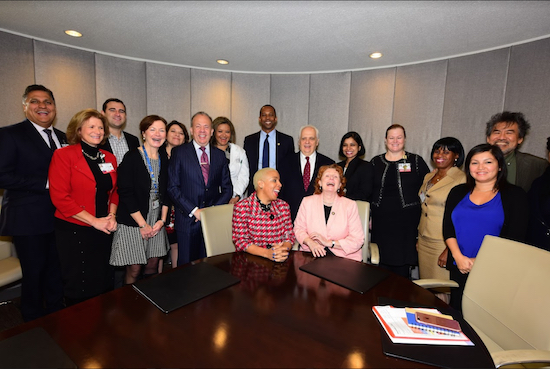The Brooklyn Hospital Center seeks state grant to expand local award-winning care

As Downtown Brooklyn continues to experience tremendous growth and transformation, the leadership of The Brooklyn Hospital Center (TBHC) hosted a “Building Brooklyn’s Future” breakfast briefing with local elected officials to discuss the future of the hospital. The hospital’s leaders outlined a master plan, which will enable it to continue its over 170-year history of providing Brooklyn families with quality healthcare in their neighborhood.
“This is a critical time for The Brooklyn Hospital Center,” CEO Gary Terrinoni explained to a panel that included New York state Assemblymembers Joseph Lentol, Walter T. Mosley and Jo Anne Simon, as well as New York City Councilmember Laurie Cumbo and noted screenwriter David Henry Hwang, who had been a patient at TBHC.

Brooklyn Boro
View MoreNew York City’s most populous borough, Brooklyn, is home to nearly 2.6 million residents. If Brooklyn were an independent city it would be the fourth largest city in the United States. While Brooklyn has become the epitome of ‘cool and hip’ in recent years, for those that were born here, raised families here and improved communities over the years, Brooklyn has never been ‘uncool’.